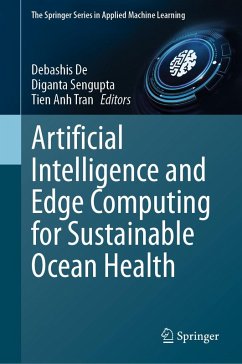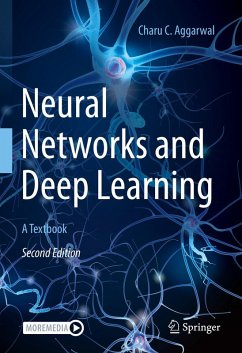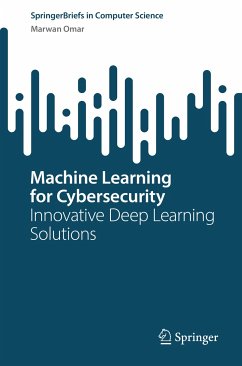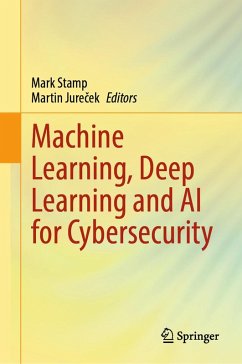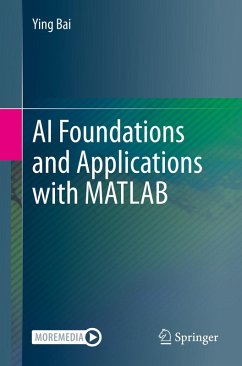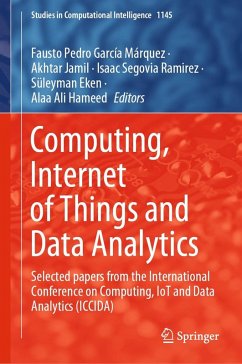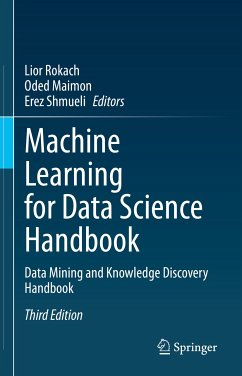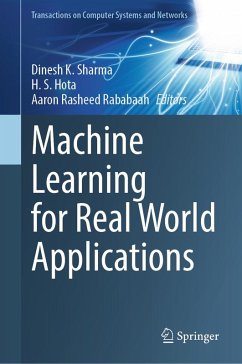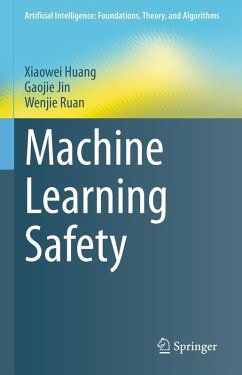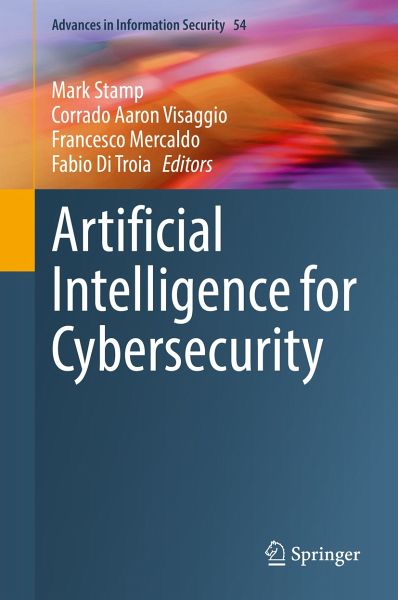
Artificial Intelligence for Cybersecurity (eBook, PDF)
Versandkostenfrei!
Sofort per Download lieferbar
Statt: 171,19 €**
120,95 €
inkl. MwSt.
**Preis der gedruckten Ausgabe (Gebundenes Buch)
Alle Infos zum eBook verschenkenWeitere Ausgaben:

PAYBACK Punkte
60 °P sammeln!
This book explores new and novel applications of machine learning, deep learning, and artificial intelligence that are related to major challenges in the field of cybersecurity. The provided research goes beyond simply applying AI techniques to datasets and instead delves into deeper issues that arise at the interface between deep learning and cybersecurity.This book also provides insight into the difficult "how" and "why" questions that arise in AI within the security domain. For example, this book includes chapters covering "explainable AI", "adversarial learning", "resilient AI", and a wide...
This book explores new and novel applications of machine learning, deep learning, and artificial intelligence that are related to major challenges in the field of cybersecurity. The provided research goes beyond simply applying AI techniques to datasets and instead delves into deeper issues that arise at the interface between deep learning and cybersecurity.
This book also provides insight into the difficult "how" and "why" questions that arise in AI within the security domain. For example, this book includes chapters covering "explainable AI", "adversarial learning", "resilient AI", and a wide variety of related topics. It's not limited to any specific cybersecurity subtopics and the chapters touch upon a wide range of cybersecurity domains, ranging from malware to biometrics and more.
Researchers and advanced level students working and studying in the fields of cybersecurity (equivalently, information security) or artificial intelligence (including deep learning, machine learning, big data, and related fields) will want to purchase this book as a reference. Practitioners working within these fields will also be interested in purchasing this book.
This book also provides insight into the difficult "how" and "why" questions that arise in AI within the security domain. For example, this book includes chapters covering "explainable AI", "adversarial learning", "resilient AI", and a wide variety of related topics. It's not limited to any specific cybersecurity subtopics and the chapters touch upon a wide range of cybersecurity domains, ranging from malware to biometrics and more.
Researchers and advanced level students working and studying in the fields of cybersecurity (equivalently, information security) or artificial intelligence (including deep learning, machine learning, big data, and related fields) will want to purchase this book as a reference. Practitioners working within these fields will also be interested in purchasing this book.
Dieser Download kann aus rechtlichen Gründen nur mit Rechnungsadresse in A, B, BG, CY, CZ, D, DK, EW, E, FIN, F, GR, HR, H, IRL, I, LT, L, LR, M, NL, PL, P, R, S, SLO, SK ausgeliefert werden.



